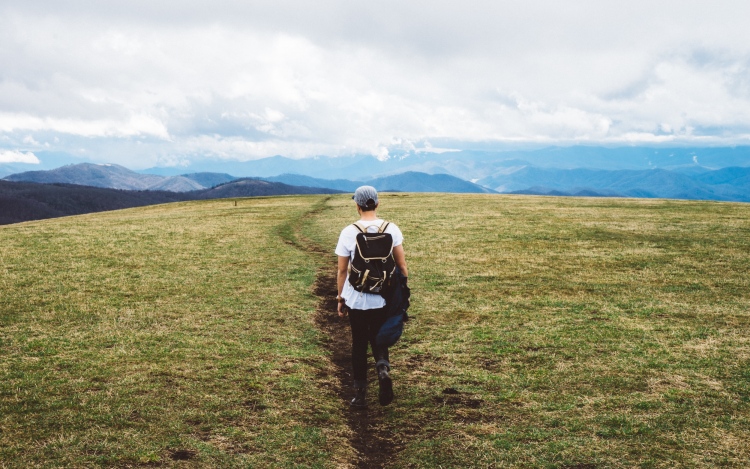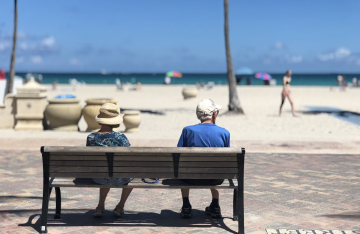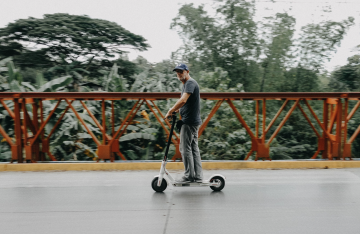Walking around the park may become a bit of a mundane activity for you after some time, so the next step that you’re eyeing at is to hike your first ever mountain.
Well, congratulations for challenging yourself into doing something new for the first time. And like any first-timers, you probably have your fears and doubts about whether you can survive it physically or not. It’s normal, don’t be ashamed.
In this list, we will help you conquer those fears by giving you tips on how you can physically prepare for your first hike.
Do cardio exercises
You must know how to handle your cardio capacity. To be able to last hours of hiking, whether with an extreme incline or not, cardio exercises will be your best friend.
At least 150 minutes of aerobic exercise a week for people aged 50 years old and above is necessary, according to the World Health Organization. You don’t have to push yourself to do an hour of cardio activities. A 30-minute session will do.
Other aerobic exercises that you can also try are swimming, cycling, brisk walking, and jogging. You can squeeze these exercises during your free time or a couple of weekends before the date of your hike.
Train for leg strength
You need your legs to be as strong and as sturdy as ever because this is what you will mostly be using during the entire hike up the mountain. Like what the gym rats always say, don’t skip your leg day!
You can work on lunges, squats, and calf raises. All these you can do at home, so no worries if you can’t find the time to hit the gym. You can even do some lunges at your office. It’s also best if you stay away from your laptop or computers for a few minutes.
To help your legs do the hike comfortably, bring an aid, a.k.a. walking sticks. This hike companion can help you survive the entire trek without putting too much pressure on your legs. But then, you also have to make sure that your arms are ready for it.
Don’t forget your core
While leg day is vital to keep your legs stable from all those walking, let’s not forget that your core is also as important.
You need your abdominal and back muscles to be strong enough to help your balance and flexibility. This could come in handy during challenging turns and surprise monkey bars or any climbing activities that need upper body strength.
You can start working on your core by doing some crunches, bridges, and the notorious planks that can get your muscles ready. The good thing about these exercises is that you can do them while watching T.V. or right after waking up.
Improve your balance
If you are wondering how you can improve your balance, here’s a trick that you can do: Raise your arms out at your side, look straight and start walking heel-to-toe.
That’s one of the best ways to make sure you don’t easily trip over.
One other trick is to stand one for 30 seconds. If you feel like you can do it without a sweat, then add more 30 seconds and see if you can still hold it without falling over.
Improving your balance is vital in hiking because any unwanted falls can cause injuries that can slow you down. If you’re trying to reach the peak by a certain hour, you have to make sure that you walk along the path and keep your balance straight no matter how hard the terrain may be.
Walking sticks can also help you with your balance during the hike, so don’t forget to bring them! Don’t underestimate its prowess. It can be a dealbreaker for you to be able to survive the rest of the activity.
Practice hikes
In preparation for your actual hike, you can do practice hikes first. If you live in a neighborhood where there is a nearby terrain of the same kind that you’re hiking at, then explore that part of your community and see if you can handle it.
You also have to be ready for unfortunate circumstances, so you need to be alert and quick on your feet. You don’t know when you will step on quicksand or a boulder that can cause injury to your ankle.
It’s best to give yourself a feel of what’s going to happen during the actual hike. This is not to surprise your body too much. At least this way, you would be able to listen to your body and adapt to its needs accordingly and immediately if necessary.
Hiking is an activity that requires our body to be in its best condition. It’s not for any superficial purpose, but it is essential because you have to make sure that you will be able to emerge triumphantly after the hike with less or no injuries at all.




